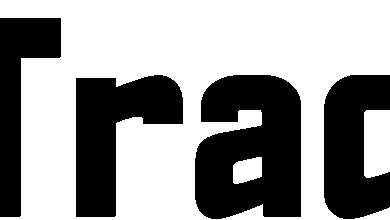DeFi Poised for a Wave of Regulatory Adoption
BitMart Research, the research arm of BitMart Exchange, has published an in-depth report on the U.S. Digital Asset Market Clarity Act (the “CLARITY Act”), spotlighting its pivotal role in reshaping the regulatory landscape for crypto and DeFi in America. Now under Senate review following a strong bipartisan vote in the House, the CLARITY Act offers long-awaited legal certainty for digital asset classification, jurisdictional authority, and developer protections. By formally splitting oversight between the SEC and CFTC and exempting non-custodial DeFi protocols from burdensome regulation, the Act lays a structured foundation for institutional adoption and DeFi innovation. When paired with the already-enacted GENIUS Act on stablecoins, this legislation signals the emergence of a full-spectrum regulatory framework that may catalyze mainstream U.S. crypto integration—anchored by self-custody rights, clearer market rules, and growing political consensus.
1. Legislative Overview and Core Provisions
In 2025, the U.S. House of Representatives overwhelmingly advanced the Digital Asset Market Clarity Act (hereinafter referred to as the “CLARITY Act”). The bill has now entered the review stage in the Senate, and if subsequently passed, it would mark a historic step forward for the United States in the regulation of digital assets.
The core objective of the CLARITY Act is to establish clear definitions and regulatory frameworks for digital assets, with a particular focus on delineating the jurisdictional boundaries between the Securities and Exchange Commission (SEC) and the Commodity Futures Trading Commission (CFTC). If enacted, the CFTC would be granted authority over exchanges, brokers, dealers, and project issuers that meet the criteria of a “mature network.” Meanwhile, the SEC would retain oversight over securities and crypto assets exhibiting characteristics of investment contracts.
Together with the Genuine Understanding and Regulation of Stablecoins Act (“GENIUS Act”), the CLARITY Act forms a comprehensive regulatory framework for the digital asset ecosystem. While the CLARITY Act focuses on blockchain infrastructure and the classification of digital assets, the GENIUS Act is dedicated to establishing clear regulatory standards for stablecoins.
Key Provisions Include:
Definition of “Digital Commodities”
The bill formally defines “digital commodities” as native crypto assets—such as Bitcoin (BTC) and Ethereum (ETH)—that have achieved decentralization and operate on public blockchains. These assets are explicitly placed under the regulatory jurisdiction of the Commodity Futures Trading Commission (CFTC), distinguishing them from securities governed by the Securities and Exchange Commission (SEC).
Framework for Recognizing “Mature Blockchain Systems”
The CLARITY Act introduces the concept of a “Mature Blockchain,” establishing technical and governance criteria—including decentralization, absence of unilateral control, and open-source code—that a project must meet to have its token reclassified from a security to a commodity. Under this framework, tokens distributed during early fundraising stages (e.g., SAFTs, ICOs, or token IPOs) fall under securities laws. However, once the project demonstrates sufficient decentralization, its tokens may transition to digital commodities, thereby relieving the issuer from burdensome SEC compliance and shifting oversight to the CFTC.
Regulatory Exemptions for DeFi Projects
The bill provides compliance exemptions for decentralized finance (DeFi) protocols that do not involve asset custody or centralized intermediaries. It also clarifies that front-end developers and node operators are not considered financial intermediaries under the law, significantly reducing the legal exposure and regulatory burden for builders in the DeFi ecosystem.
Disclosure Obligations and Insider Trading Restrictions
Platforms operating digital commodity trading markets must register with the CFTC as “Digital Commodity Exchanges.” This requirement extends to OTC brokers and market makers. These entities will be subject to federal regulatory standards, including minimum capital requirements, risk management protocols, trade surveillance, regulatory reporting, and customer asset protection. For firms engaged in both securities and commodity businesses, dual registration with the SEC and CFTC will be required. Although this creates additional compliance complexity, the bill clearly delineates the scope of each agency’s authority.
Legal Pathways for Traditional Institutional Participation
The Act provides a clear legal basis for traditional financial institutions—such as banks and broker-dealers—to offer custody and trading services for digital assets. This opens the door for broader institutional participation and facilitates deeper integration between traditional capital markets and the digital asset economy.
2. Impact on the Crypto Market
Clearer Regulations Boost Market Confidence
The CLARITY Act brings long-awaited legal clarity to the crypto industry, ending years of uncertainty and “regulation by enforcement.” Projects and platforms can now operate under a clear framework, helping prevent fraud and boosting transparency. This builds investor trust, attracts institutional capital, and improves market liquidity. Institutions can reduce legal risks, while retail investors benefit from stronger protections like mandatory disclosures and insider trading rules.
Shift Away from SEC-Dominated Oversight
The Act limits the SEC’s broad authority over crypto by giving the CFTC jurisdiction over decentralized assets like BTC and ETH. This helps resolve past regulatory disputes (e.g., XRP, SOL, ADA) and creates a more suitable oversight structure for different types of digital assets.
Traditional Exchanges Can Enter Crypto Market
Traditional securities exchanges like Nasdaq and NYSE will be able to apply for licenses to offer crypto trading. This means investors could soon trade stocks and crypto on the same platform, lowering barriers and giving traditional financial institutions a compliant way to enter the digital asset space.
3. Impact on DeFi Projects
Clear Exemptions to Protect Protocol Developers
Under the CLARITY Act, DeFi projects that do not engage in custodial or intermediary activities are exempt from registration with the SEC or CFTC. Developers writing code, operating nodes, or offering front-end interfaces are not considered financial service providers.
-
Non-custodial ≠ Intermediary: If a DeFi protocol does not hold user assets or offer traditional financial services, its developers, node operators, and interface maintainers are not classified as intermediaries and are exempt from licensing requirements.
-
Code Deployment Is Not a Financial Act: Publishing smart contracts or wallet software is treated as a technological activity rather than a financial one, and therefore falls outside the scope of financial regulation.
Legal Recognition of Self-Custody and User Property Rights
Section 105 of the Act affirms the legal right of users to self-custody their digital assets and conduct peer-to-peer transactions via non-custodial wallets. This provision protects DeFi users from legal penalties for managing their assets independently.
-
Legal Self-Custody: Users can manage funds via hardware or software wallets without involving banks or intermediaries.
-
Autonomous Transaction Rights: Users may engage freely in on-chain transfers, DeFi governance, or liquidity mining without KYC or intermediary involvement.
-
U.S. Sovereignty over Digital Rights: The principle of “control of private keys = control of assets” is embedded in law, affirming the legality of private blockchain interactions without needing permission.
Implications for Leading DeFi Protocols
Most DeFi protocols qualify as non-intermediaries under the CLARITY Act, making them eligible for exemption from registration and licensing. This marks a major compliance breakthrough in the short term. However, the Act does not fully resolve legal uncertainty around tokens issued by these protocols.
Tokens may still be classified as securities if they meet the criteria of an “investment contract,” such as if investor profits are driven by the efforts of the project team. Therefore, while the Act provides legal clarity at the protocol level, it does not automatically ensure token compliance.
To reduce the risk of token classification as securities, DeFi projects must continue decentralizing governance, promoting community-led decision-making, and minimizing project team control. These steps help build a stronger legal foundation and enhance the long-term sustainability of token ecosystems.
4. Future Outlook
As of July 23, 2025, the CLARITY Act has entered the Senate review stage, marking a major step in U.S. digital asset legislation. A key point of debate is whether the Senate will preserve the House-passed provisions on DeFi exemptions and token classification. Final outcomes will depend on committee hearings and possible amendments.
If passed, the Act will help establish a clear, tiered regulatory framework: security tokens regulated by the SEC, and commodity tokens overseen by the CFTC. This structure offers legal clarity for developers, DeFi protocols, and exchanges, reducing uncertainty and encouraging institutional participation. It also strengthens the U.S. position in global crypto regulation.
The CLARITY Act works in tandem with the GENIUS Act—already signed into law—to form a two-pillar system. While CLARITY focuses on asset classification and market structure, GENIUS provides stablecoin regulations. Together, they create a full compliance path: exemption, transition, and final classification.
Once enacted, the CLARITY Act will mark the beginning of a comprehensive regulatory framework, further legitimizing crypto assets within the U.S. financial system.
About BitMart
BitMart is a premier global digital asset trading platform with more than 10 million users worldwide. Consistently ranked among the top crypto exchanges on CoinGecko, BitMart offers over 1,700 trading pairs with competitive fees. Committed to continuous innovation and financial inclusivity, BitMart empowers users globally to trade seamlessly. Learn more about BitMart at Website, follow their X (Twitter), or join their Telegram for updates, news, and promotions. Download BitMart App to trade anytime, anywhere.
Risk Warning:
The information provided is for reference only and should not be considered a recommendation to buy, sell or hold any financial asset. All information is provided in good faith. However, we make no representations or warranties, express or implied, as to the accuracy, adequacy, validity, reliability, availability or completeness of such information.
All cryptocurrency investments (including returns) are highly speculative in nature and involve significant risk of loss. Past, hypothetical or simulated performance is not necessarily indicative of future results. The value of digital currencies may rise or fall, and there may be significant risks in buying, selling, holding or trading digital currencies. You should carefully consider whether trading or holding digital currencies is suitable for you based on your personal investment objectives, financial situation and risk tolerance. BitMart does not provide any investment, legal or tax advice.
Source link





